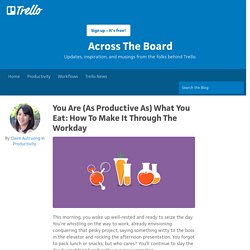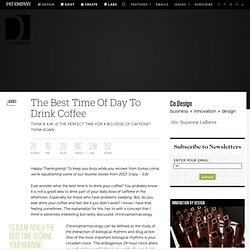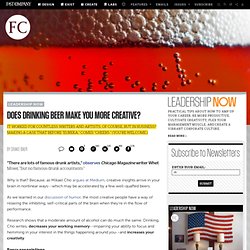

You Are (As Productive As) What You Eat: How To Make It Through The Workday - Trello Blog. This morning, you woke up well-rested and ready to seize the day.

You’re whistling on the way to work, already envisioning conquering that pesky project, saying something witty to the boss in the elevator and rocking the afternoon presentation. You forgot to pack lunch or snacks, but who cares? You’ll continue to slay the day by grabbing lunch with your new coworker. By the time you walk into your afternoon presentation after a burger and a soda and a whipped cream-topped coffee, your jaunty morning feels a million miles away. You’re sluggish, tired and can’t believe you have to do this presentation now instead of crawling under your desk to sleep. Admit it: It’s not uncommon to find yourself in situations where you didn’t have enough energy to make it through the workday productively — and a lot of it has to do with what you mindlessly put in your mouth while working.
We are what we eat and drink. Your Brain Is Food-Sensitive Start on the Right Foot Eat breakfast. Focus On Brain Foods. The Best Time Of Day To Drink Coffee. Happy Thanksgiving!

To keep you busy while you recover from turkey coma, we're republishing some of our favorite stories from 2013. Enjoy. --Eds Ever wonder what the best time is to drink your coffee? You probably know it is not a good idea to drink part of your daily dose of caffeine in the afternoon. Chronopharmacology can be defined as the study of the interaction of biological rhythms and drug action.
But, what part of the brain produces this 24-hour cycle and what signals does it receive in order for it to do so properly? What does that mean? Most readers here enjoy–-and desperately need-–their morning coffee. Drug tolerance is an important subject, especially in the case of caffeine since most of us overuse this drug. One of the key principles of pharmacology is use of a drug when it is needed (although I’m sure some scientists might argue that caffeine is always needed).
A version of this article originally appeared on BrainFacts.org. Does Drinking Beer Make You More Creative? "There are lots of famous drunk artists," observes Chicago Magazine writer Whet Moser, "but no famous drunk accountants.

" Why is that? Because, as Mikael Cho argues at Medium, creative insights arrive in your brain in nonlinear ways--which may be accelerated by a few well-quaffed beers. As we learned in our discussion of humor, the most creative people have a way of relaxing the inhibiting, self-critical parts of the brain when they're in the flow of performance. Research shows that a moderate amount of alcohol can do much the same. Drinking, Cho writes, decreases your working memory--impairing your ability to focus and hemming in your interest in the things happening around you--and increases your creativity. One of the keys to innovative, combinatorial creativity is the ability to make associations between disparate things. Here's what happened: The subjects got a little tipsy (.07 BAC, just below the legal driving limit). For the boozy test, subjects received three target words, like: The Sweet Science Behind How Chocolate Makes You More Productive.
Stop for a minute and savor cocoa's accomplishments: battler of stroke, diabetes, and heart disease; booster of blood flow; and now, research suggests, calmer of the mind . While there are many excellent qualities to chocolate, research at an Austrailian university shows that the polyphenols in chocolate can make people feel more calm and contended . So what else can the lovely stuff do? Polyphenols are a group of badass antioxidants found in tea, walnuts, olive oil, fruits, and veggies. The polyphenols found in dark chocolate hang out with brain receptors associated with anxiety, the study authors say, in the same way that some common anxiety medications do. "Anecdotally, chocolate is often linked to mood enhancement," says Matthew Pase, the lead author of the study.
As we've discussed before, when people get creative, they relax their inhibitions , allowing ideas to flow more smoothly. Conclusion? The Candy That Calms [ Image: Flickr user John Loo ]